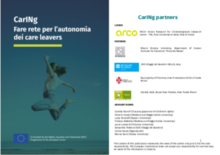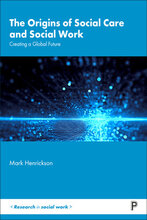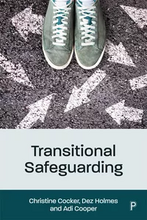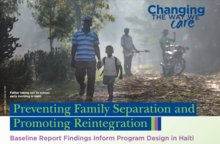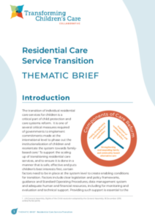Displaying 61 - 70 of 1343
Martin Punaks discusses effective advocacy campaigning in this episode of Care Conversations.
This short paper provides an overview of the existing links between disability and trafficking in human beings, how persons living with disability are affected by trafficking, and to what extent legal standards, policy frameworks, and anti-trafficking measures integrate concerns associated with disabilities.
CarINg aims at helping girls and boys in the alternative care system (care leavers) become protagonists of their own future by making them feel part of a welcoming community.
Disability Rights International, as part of the Global Coalition on Deinstitutionalisation (GC-DI), organized a series of thematic workshop on the UN Guidelines on Deinstitutionalization, including in emergencies.
Bringing together interdisciplinary scholarship, Mark Henrickson argues that it is essential to understand and critique social work’s origins in order to work out what to retain and what must change if we are to achieve the vision of a truly global profession.
Niels Peter Rygaard, a leading child psychologist, sheds light on 'missing links' and growth-encouraging assessment methods in this episode of episode of Care Conversations: ICB Podcast. He explores the ways of connecting with children without parental care and ways to make small changes that create a large impact in the world of family strengthening and alternative care.
This book sets out the case for Transitional Safeguarding, a new approach to protection and safeguarding designed to address the needs and behaviours of young people aged 15-24 who are falling between gaps in current global systems, with often devastating results. While the book addressed the gaps in the current system in the UK, the lessons have global application and the authors outlines how the specific needs of young people can be met through this approach.
Dr. Monisha Nayar Akhtar, a leading child psychologist and psychoanalyst talks to host Dr. Kiran Modi about the support institutionalised children need in the form of a nurturing family unit.
This is a comprehensive baseline survey by Changing the Way We Care Haiti aimed at informing the design of a robust care reform program focused on averting family separation and fostering sustainable reintegration.
This brief contains high-level guidance and recommendations for policy and decision-makers and development partners to consider in designing frameworks to scale up, coordinate and support the transition of individual residential care services.


